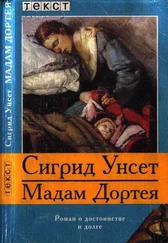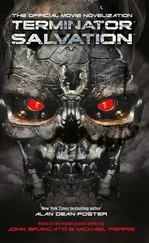Cough, cough, cough, cough, cough . That sound lived so deep in him he didn’t see how he could ever have forgotten it, even for a while. But then, forgetting your own name—how unlikely was that?—and he had done that, too.
His mother at the kitchen table, buttoned up in her winter coat—had she ever finished writing that message to Addy?
I’m sorry for your loss. A man—not a doctor or a nurse—a man dressed in street clothes. Visitor’s badge, hair-choked nostrils, crooked brown teeth. A man with a laptop. We need to talk about next of kin.
Cole was still feverish, his head was like a noisy machine churning mud. He tried to churn up answers. Somewhere in Florida were his grandparents: his father’s father who had Alzheimer’s, and his father’s mother, paralyzed from a stroke. In a home for old people but—and this had always puzzled Cole—not the same home. He could not remember the name of the town or the last time he’d seen them.
No brothers or sisters on his father’s side; on his mother’s side only Addy. When the man asked him where Addy lived, Cole slipped and said Chicago. Sometime after his second, more severe, bout of illness, he was told his aunt had not yet been found. He was confused; he had no memory of telling anyone about Addy.
He would be living at Here Be Hope for weeks before the mistake about Addy’s whereabouts was discovered. But Cole thought if Addy had been trying to reach him she’d have done so by now, and he was not surprised when one day, not long after he’d moved to Salvation City, PW gave him the news that she had passed. PW didn’t say anything about Addy’s being Jewish, or about her being unsaved and therefore condemned to hell. He only repeated what he’d told Cole before: the best way to remember people after they’ve passed is to remember the good about them. And then they had prayed together.
That loss did not touch his core. He’d never been close to Addy, or even had a chance to get to know her. He’d never been quite sure what to make of her, especially after hearing his mother say Addy was the kind of woman for whom having kids would’ve ruined her life. It wasn’t that he took it personally (Addy had always been perfectly nice to him), but it had made him a little wary.
His father used to say that part of his mother’s dissatisfaction in life had to do with the fact that growing up a twin, she’d never felt she was unique or special enough. Which perplexed Cole, not just because he would have given anything to have had a twin brother but because he thought being a twin meant that you were special.
Once he’d absorbed the fact that Addy, too, had vanished from the earth, his strongest feeling was not loss but gratitude that his mother had been spared this. Because even though they had lived far apart, and even if his mother had not been happy about being a twin, he knew that she had loved Addy. He remembered that Addy was the first person she had turned to after his father died.
Remember not the former things (Isaiah). Forget and press on .
But in the days leading up to the broadcast, Cole found himself living more and more in the past. As if his memory were like an empty stomach now, needing to fill itself up.
Lying in his parents’ bed, in his father’s flu germs—this he remembered so well it could have happened that morning. Cole had never spoken out loud his wish to die. (The secrets piling up, one after the other; he carried them with him, stones in a sack.) That feeling had passed; he’d stopped wanting to die.
He did not have the strength for such a powerful wish.
The pills he was given in the hospital, the ones he was promised would make him feel better, he’d cheeked them and later flushed them away. Feel better for what?
And when he was well enough to be moved to the orphanage (actually a converted warehouse for an electronics supply company that had gone out of business), it had helped not to care. It made the transition easier, as things are easier when you don’t care what happens to you.
He did not feel better, he did not feel worse. He was a stranger inside his own skin. He did not eat much, some days not at all. Either he had trouble falling asleep or he slept around the clock.
He did not make friends. He avoided people—and not just the ones you had to avoid if you didn’t want trouble. He avoided everyone, other kids and grown-ups alike. But in fact, unless you were a gangbanger or a rapture child or injured or very sick, you were not likely to attract much grown-up attention.
“Sounds to me like it wasn’t much better than a kennel. Is that right, my dear? You got food, water, and shelter, but not much else?”
“Yes,” Cole said—truthfully, yet his face reddened as if he’d lied. He knew he was expected to say more, and he could have said more. About the way kids fought over food. About how some kids would take food away from other kids, partly out of hunger, but mostly to be mean. They’d throw the food around (Here Be Hope food fights were epic), or do something to it so that even the hungriest kid wouldn’t eat it. (Though there was the time a boy had a coughing fit, and when a chunk of meat flew out of his mouth another boy caught it midair and stuffed it into his own mouth.) It had happened a few times to Cole, having his food snatched (usually by Da Phist), but since he was never very hungry it hadn’t affected him too badly.
They had names like Pharocious II and Grime-Boy and Niggahrootz and Da Phist. The black kids.
The white kids called themselves Methastofeles and Skull Mother and Kid Hammer and Dude Snake.
The grown-ups did whatever they could to keep them apart, and when they failed there was mayhem.
He knew this was what he was supposed to be talking about, what he had already talked about with PW, who in turn had told all to Boots. But in the sound booth, Cole had gone all but mute. He knew what he was supposed to say, but the words wouldn’t come, and Boots was being forced to do most of the talking.
“We’ve all heard people call these places Dickensian. Would you say that’s a fair and accurate description?”
“Yes.”
At first, before he’d heard it so many times, he hadn’t been completely sure what “Dickensian” meant. He’d always assumed it had something to do with Christmas. He thought of the dreadlocked giantess who told everyone to call her Mama Jo, but whom everyone called by another name instead, forever fuming about the “Dickensian” or “barbaric” state of things, and how funny it was the way she shook her fist at God at the same time she was begging him to help her.
Mama Ho. In a quiet moment alone with her (haircut, delousing), Cole once heard her say the pandemic had set life back a hundred years. She was crying then, and he’d worried she would nick him, the way her shoulders were jerking. But those were the days when, rather than stop whatever they were doing, people would just go about their business in tears. Everyone was used to the sight. His mother—
“Why don’t you share more about it with us? You know, just—in your own words.” Boots was smiling and his voice was calm, but Cole knew Boots couldn’t be very happy with him at this moment.
Come on, Cole. Words. Remember? But now was not a good time to be thinking about his mother.
“It was like life was set back a hundred years?”
“Ah. Well said. Can you elaborate?”
“Like, we didn’t have any computers or cells, and that was weird. There were a couple TVs, but they all got smashed or stolen. We didn’t have lots of books. We had some paper and some pens and pencils. But we didn’t have real school.” These few lines had exhausted him, but he labored on. “We had classes. Sometimes. Only not real classes. I mean, they’d put us in groups and make us talk about something, and maybe they’d give us homework. But it wasn’t like, you know—it wasn’t like school school.”
Читать дальше












